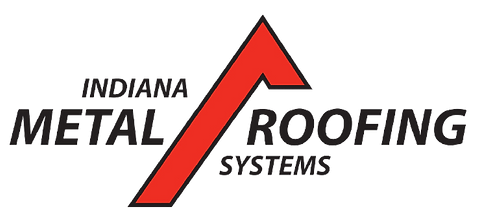Metal Roofing Unveiled: Exploring Its Pros and Cons
- Joseph Justice
- Nov 26, 2024
- 2 min read
Metal roofing has gained widespread popularity due to its durability, energy efficiency, and environmental benefits. Indiana Metal Roofing Systems highlights the advantages and limitations of metal roofing, helping homeowners and businesses make informed decisions when considering this long-lasting option.

Merits of Metal Roofing
1. Extended Lifespan
Metal roofs are known for their impressive longevity, with an average lifespan ranging from 40 to 70 years. Compared to traditional shingle roofs, which last between 10 to 40 years, metal roofing offers superior durability. Metal roofs resist wind, UV radiation, and precipitation, making them a reliable choice in various climates.
2. Thermal Efficiency
Metal roofs are energy-efficient, reflecting heat away from the building, which helps maintain a cooler indoor environment, especially during hot summer months. This reflectivity can lead to reduced cooling costs, as it minimizes the need for air conditioning.
3. Customizable Aesthetics
Metal roofing is available in a wide range of colors and styles, allowing homeowners to customize the look of their roof to suit their architectural preferences. Whether you want bold, bright colors or more neutral tones, metal roofs offer versatile aesthetic options.
4. Fire Resistance
One significant benefit of metal roofing is its fire-resistant nature. Metal roofs do not ignite or spread flames, providing added peace of mind, especially in areas prone to wildfires.
5. Environmentally Friendly
Metal roofs are an eco-conscious choice. Not only are they made from recycled materials, but they are also 100% recyclable at the end of their lifespan. This reduces landfill waste and contributes to sustainable building practices.
Shortcomings of Metal Roofing
1. Upfront Costs
The initial cost of metal roofing can be higher than traditional materials like asphalt shingles. However, considering the extended lifespan and energy savings, the investment often pays off in the long term.
2. Vulnerability to Dents
While metal roofs are durable, they can be prone to denting from hail or debris. Opting for high-quality metal and professional installation can help minimize the risk of damage.
3. Noise Concerns
Metal roofs may amplify rain or hail sounds, which can lead to higher indoor noise levels. Adequate insulation and underlayment can address this issue, reducing noise significantly.
4. Repair Complexity
Repairing metal roofs can be more challenging than traditional roofs. If damage occurs, it may require replacing larger sections, which can increase repair costs. Regular maintenance and inspections can help prevent significant damage.
Industry Insights from Indiana Metal Roofing Systems
At Indiana Metal Roofing Systems, we provide expert metal roofing solutions, combining our experience and knowledge to deliver superior installations. Here are some essential tips for those considering metal roofing:
Trust Professional Installers: Proper installation is key to a metal roof's longevity. Engage with experienced professionals to ensure optimal results.
Perform Routine Inspections: While metal roofs require minimal maintenance, periodic inspections can help identify potential issues before they escalate.
Conclusion
Metal roofing is a solid investment, offering a long lifespan, energy efficiency, and environmental benefits. While the initial costs and potential for dents are considerations, the advantages often outweigh these drawbacks. By working with trusted professionals like Indiana Metal Roofing Systems, homeowners can enjoy the full potential of metal roofing for decades to come.
For tips for spotting storm damage on your roof, click here.


Comments